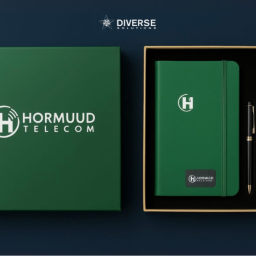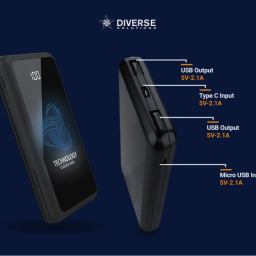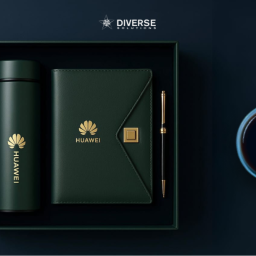
Corporate gifts have long been a part of business culture, often seen as gestures of goodwill and tools for building relationships. However, beneath the surface, these gifts can carry significant influence. Are they simply strategic tools for creating bonds, or do they verge on manipulation, pushing the boundaries of ethics? In this blog post, we’ll explore the psychology behind corporate gifting, its use as a strategic tool, and the ethical dilemmas it can raise.
The Psychology of Gift-Giving
Understanding the psychology behind gift-giving is crucial to uncovering its influence in business. Gifts can trigger various psychological responses, making the recipient more inclined to view the giver favorably. Let’s break down three key psychological principles:
Reciprocity bias
Reciprocity bias is a powerful psychological principle. When someone gives us a gift, we naturally feel an urge to repay them in some way. In business, this can translate into a feeling of obligation to offer something in return, such as business deals, favors, or preferential treatment. A study published in the Journal of Applied Psychology found that 68% of professionals felt an obligation to reciprocate when receiving a corporate gift, even if the value was modest. This tendency shows how influential gifts can be in creating a sense of duty in the recipient.
Social proof
Social proof plays a big role in how corporate gifts are perceived. When a company gives gifts to multiple clients or partners, it sets a precedent, signaling that this is the norm. Seeing others accept gifts can influence others to do the same, creating a ripple effect. Businesses often leverage this principle to build trust and establish a positive image among their networks.
Liking
We are naturally more inclined to favor people we like or admire, and gifts can enhance these feelings. When companies give thoughtful, well-timed gifts, they create positive associations and build rapport with recipients. A study from the Journal of Business Ethics reported that 74% of executives felt more favorable toward brands that engaged in meaningful gift-giving practices. This shows how gifting can be used strategically to build a sense of goodwill and admiration, influencing future business decisions.
Corporate Gifts as a Strategic Tool
Corporate gifts are more than just gestures; they are strategic tools that can shape business outcomes. When done correctly, they strengthen relationships, demonstrate value, and leave lasting impressions.
Building relationships
At its core, corporate gifting is about relationship-building. It’s a way to show clients and partners that they are valued beyond the transactional level. A thoughtful gift can bridge gaps, foster trust, and solidify connections. Companies that invest in relationship-building through gifts often see improved client loyalty and long-term partnerships. A survey by Harvard Business Review found that companies that regularly engaged in strategic gift-giving had a 32% higher client retention rate than those that did not.
Demonstrating value
A well-chosen corporate gift can showcase a company’s commitment and resources. It’s a subtle way of saying, “We value this relationship enough to invest in it.” High-quality gifts, such as customized items or experiences, demonstrate the company’s dedication and attention to detail, reinforcing their professionalism and values.
Creating a memorable experience
Corporate gifts aren’t just about the physical item; they’re about the experience they create. An exclusive event, a personalized gift set, or a memorable activity can leave a lasting impression on the recipient. According to the Journal of Consumer Research, experience-based gifts tend to have a stronger emotional impact and are remembered longer than material gifts. This long-lasting impression can make your brand stand out, increasing the likelihood of future business engagements.

The Dark Side of Corporate Gifts
While corporate gifts can be powerful tools, they can also have a darker side if used unethically. There are risks associated with using gifts to manipulate or create unfair advantages.
Bribery and corruption
The line between a gift and a bribe can be thin, especially when gifts are used to gain favor or influence decisions. Bribery laws vary across countries, but many regulate the value and intent behind corporate gifts. In some cases, what might seem like a simple gift could be perceived as an attempt to sway business outcomes, leading to legal consequences.
Manipulation
Gifts can be used strategically to influence decisions, but this can cross into manipulation if not handled ethically. When companies use gifts to pressure clients or partners into making decisions they wouldn’t otherwise make, it becomes a form of coercion. According to research in the Journal of Business Ethics, manipulation through corporate gifts can damage trust and lead to strained relationships.
Inequality
Corporate gifts can also create inequality, favoring certain individuals or groups over others. If a company offers gifts to some clients but not others, it may create an imbalance that affects the perception of fairness. This can lead to resentment and a sense of favoritism, harming the company’s reputation.
Ethical Considerations in Gift-Giving
To navigate the complexities of corporate gifting, businesses need to be transparent, compliant, and respectful in their practices.
Transparency
Being open about the value and nature of gifts is crucial. Transparency helps to avoid misunderstandings and ensures that all parties are aware of the intentions behind the gift. Companies should establish clear guidelines for disclosure to maintain trust and ethical standards.
Compliance
Adhering to industry regulations and company policies is essential for ethical gift-giving. Many industries have strict rules about the value of gifts and the circumstances under which they can be given. It’s important to familiarize yourself with these regulations to avoid legal issues and ensure that your gift-giving practices align with industry standards.
Respect
It’s important to avoid gifts that could be perceived as offensive or inappropriate. Understanding cultural differences and respecting the recipient’s values can help ensure that your gift is well-received. A gift that shows consideration and respect for the recipient’s preferences is more likely to strengthen the relationship.

Best Practices for Corporate Gift-Giving
To maximize the positive impact of corporate gifts while maintaining ethical standards, consider the following best practices:
Personalization
Tailoring gifts to match the recipient’s interests or business needs makes them more meaningful. When you personalize a gift, it shows that you’ve really thought about the person, which enhances its overall impact.
Quality
Choosing high-quality and thoughtful items reflects your company’s appreciation for the relationship. A well-made, useful, or unique gift creates a stronger impression than something generic, demonstrating that you value the connection.
Timing
Giving gifts at the right moments, such as during special occasions or after significant achievements, indicates that you recognize and celebrate the recipient’s milestones. This thoughtful approach shows that you see them as more than just a business transaction.
Final Thoughts
Corporate gifts can be a powerful tool for building relationships and leaving a positive impression. However, it’s important to use them ethically and thoughtfully to avoid crossing the line into manipulation. By understanding the psychology behind gift-giving, being transparent, and adhering to ethical practices, businesses can harness the true potential of corporate gifts to foster genuine connections.
For more insights on corporate gifting strategies and to explore a wide range of customizable eco-friendly options, visit Diverse Solutions.
















